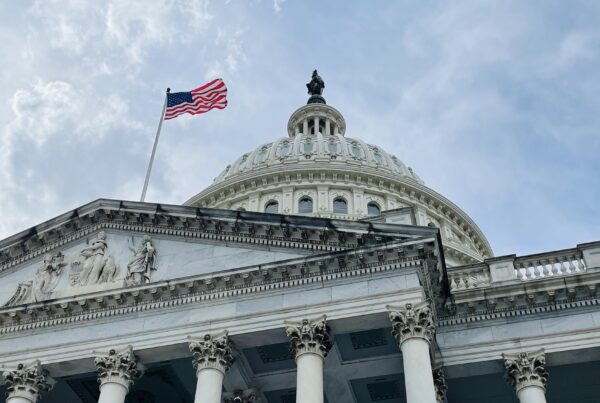The impact of the U.S. Supreme Court’s decision in South Dakota v. Wayfair, now over a year since it was handed down, continues to reverberate throughout the business world. As the year wears on, it’s clear that the decision carries implications for industries beyond retail and, indeed, for the very basic functions of any business with multi-state operations. Not understanding these implications can have significant financial consequences—failure to collect sales taxes on remote sales can result in significant tax assessments for the seller.
Businesses, with their tax advisor’s guidance, should be assessing potential sales and use tax exposures in light of Wayfair. Businesses should also consider how the Wayfair decision affects some less-obvious areas of their organizations. Managing the fallout from Wayfair requires a holistic view of how your business’ areas of operation intersect with sales taxes, as well as other state taxes, such as income or franchise taxes. In other words, it requires understanding your total tax liability.
The business world continues to pull at the thread of the Wayfair decision, unraveling its implications from income tax obligations and M&A repercussions, to financial reporting changes and new marketplace facilitator tax laws. As with most matters concerning taxes, these issues seem straight-forward but can be very complex.
Wayfair Sheds Light on Historical Noncompliance
In its June 21, 2018, decision, the U.S. Supreme Court replaced the physical presence nexus standard in favor of an economic one, thereby removing constitutional barriers to states’ lawful ability to collect sales and use taxes from out-of-state sellers. The Wayfair decision had a domino effect: States began adding or revising statutory language for remote sales/use tax collection, and several states introduced laws that automatically went into effect following the decision. As of the publication of this article, all but two states (Florida and Missouri) have enacted an economic nexus rule, which makes collecting and remitting sales taxes a likely necessity: If you aren’t collecting sales tax, or aren’t collecting the proper amounts, you may be taking on significant financial risks.
In light of the Wayfair decision, it is appropriate for every business to reassess its organization’s nexus, or connection, with each state where it ships or delivers sales. For many, this assessment may reveal a business already had state tax nexus, even before the Wayfair decision was issued, because they had an in-state physical presence. For example, software providers often offer onsite installation and training to accompany their product sales. If this is the case, the software seller most likely already had an in-state physical nexus because of the onsite installation service performed in the state. It is prudent for such sellers to quantify their historical exposures and consider mitigating historical liabilities through voluntary disclosure agreements (VDAs) before registering for sales taxes.
State Income Tax Obligations Triggered
The tax implications of Wayfair extend beyond sales and use taxes. The Supreme Court held that an activity is subject to a state’s power to tax when “the taxpayer [or collector] ‘avails itself of the substantial privilege of carrying on business’ in that jurisdiction.” As such, Wayfair lifts the constitutional barriers to states imposing state income/franchise tax filing obligations on remote sellers, too.
Many businesses have been anticipating states will pass laws that codify not only their entitlement to sales taxes but state income taxes, too. However, from the state income tax perspective, this generally has not happened. Most states already have a general nexus provision in their statutes that allows them to levy income taxes to the fullest extent allowed under the U.S. Constitution.
As a next step, states will likely clarify and/or enforce their preexisting laws. Massachusetts, for example, issued a proposed regulation indicating that if a remote seller’s sales volume exceeds the state’s sales tax safe harbor threshold, barring Public Law 86-272 immunity, the company will have an income tax filing obligation, too.
Rather than proactively preparing to address any income tax exposure, many companies are delaying action until they receive a notification from state taxing authorities that says they need to file income tax returns. For obvious reasons, this isn’t the best way to manage potential tax exposure. To determine whether you may be required to pay state income taxes, first look at the composition of your sales. Are you selling a tangible property or a service?
If you are selling tangible property, then you may still be protected under a 1959 federal statute, Public Law 86-272, which prevents states from levying income tax on out-of-state companies if their activities within the state are limited to soliciting orders for the sale of tangible personal property and if the orders are approved and filled from outside the state.
However, if you are selling a service or tangible property that is installed by a company employee or contractor, these sales, by definition, contain a service element, which precludes Public 86-272’s applicability, unless the unprotected activities are de minimus. Companies should also be aware of the possibility that while states may not seek to apply an economic nexus standard for sales and use taxes for periods prior to the June 2018 Wayfair decision, they may do so for other tax liabilities.
Compounding Complexity: Marketplace Facilitator Tax Laws
While Wayfair has obvious effects on the e-commerce sector, its impact also extends to the middlemen of retail sales transactions. As the year continues to unfold, unforeseen exposure for both retailers and these middlemen has the potential to have a great impact as companies begin to understand their collection and reporting responsibilities.
New sales tax laws are now requiring marketplace facilitators — third-party entities that facilitate sales such as Amazon — to collect and remit sales and use taxes on behalf of retailers. These laws help to substantially reduce the number of remote sellers that state tax authorities may seek to audit. We expect nearly all states will enact marketplace facilitator tax laws in the near future.
By nature, marketplace facilitators don’t have intimate knowledge of the goods or services being sold as the retailers themselves. This lack of familiarity could result in a fair amount of under-collected sales tax if these sales are not properly accounted for or mapped to the correct taxability classification. Also, this under-collecting is compounded by the fact that there is lack of clarity around who should ultimately be responsible for the correct amount of sales taxes collected and reported to the taxing agencies, whether it’s the retailer or the company facilitating the sale.
It is imperative that companies keep a record of how each sale is taxed and who has collected and/or reported the sales tax. This enables transparency into potential liabilities, which, by extension, allows companies to prepare for the payment of such liabilities.
The complexities and far-reaching effects of the Wayfair decision cannot be understated. Sales and use tax exposure is just the tip of the iceberg. From tangible goods to services, and state income/franchise tax to financial reporting, Wayfair has unleashed a formidable amount of change to the most basic tax operations of your business. If your company is in the business of making sales, you should be assessing how Wayfair compliance has altered your total tax liability.





